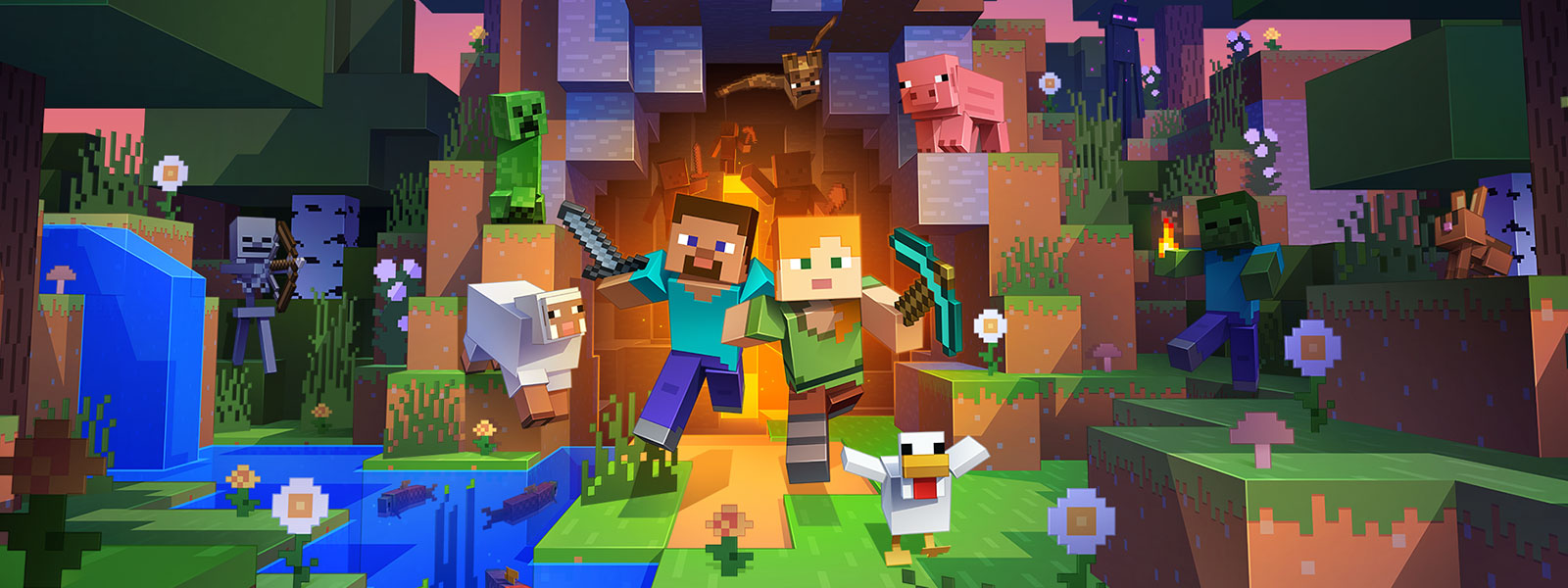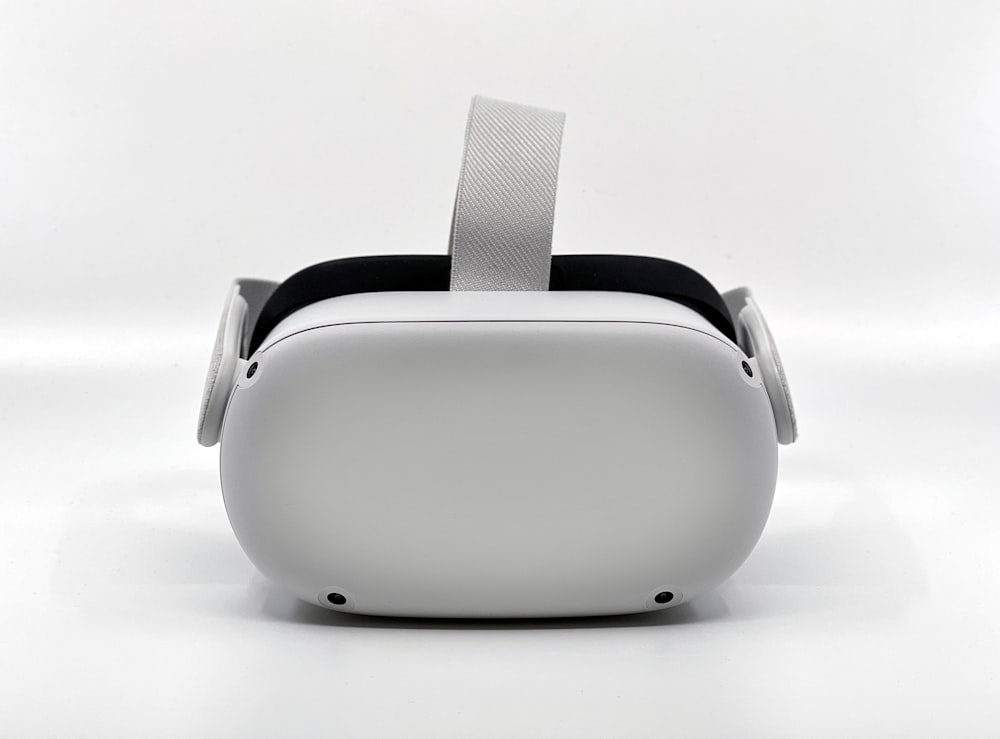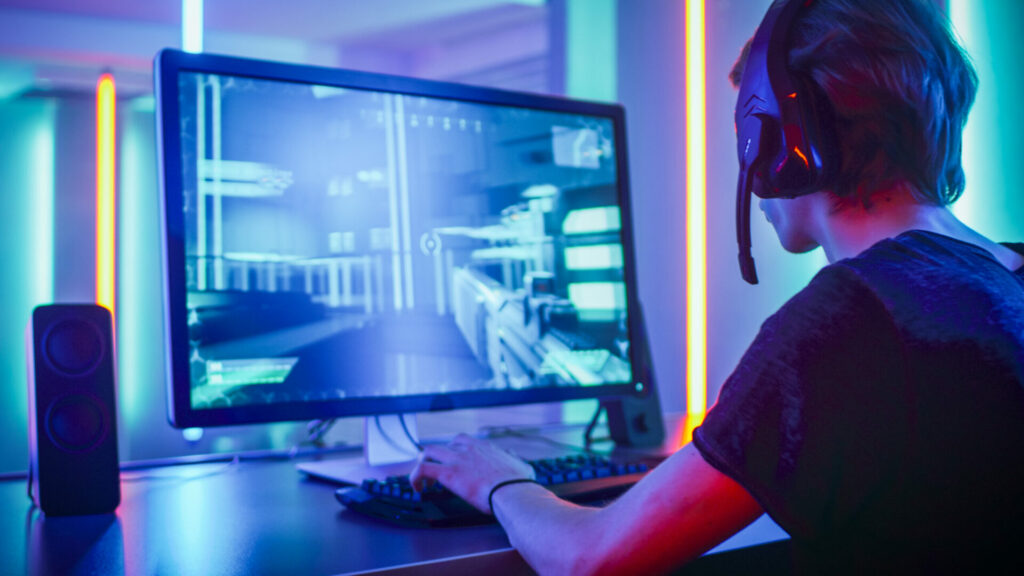By now, all of us in the gaming industry are familiar with the term Metaverse – whether we know fully what it means, or not.
In 2021, CEO of Facebook Mark Zuckerberg changed the social media company’s name to Meta Platforms, and announced that from now on they would be dedicated to the creation of a functioning metaverse.
Interestingly, however, the term has been around for decades, and is much closer to realisation than you might think. In this article, we’ll explore what the Metaverse is, how it came into being, and how it has – and will – affect the gaming industry.
What is the Metaverse?
The term “metaverse” was actually coined way back at the dawn of the internet, in Neal Stephenson’s 1992 sci-fi novel Snow Crash. Stephenson created the portmanteau by combining “meta” (meaning “beyond”) with the word “universe”. Literally speaking, therefore, the Metaverse is a universe beyond our own.
In real terms, we’re talking about a fully-immersive Virtual Reality or Augmented Reality network of online worlds in which participants (or players) can socialise with one another, play hyper-realistic games, attend virtual events and engage in online marketplaces, all from the comfort of their own homes.
Does the Metaverse Already Exist in the Gaming Industry?
Since Zuckerberg’s announcement last year, amidst the drastic COVID-19-precipitated shift of socialisation to an online-only platform, most of us have understandably come to associate the Metaverse with Meta Platforms. In truth, however, pursuit of the concept of “metaverse” has long been driven – not by social media – but by the gaming industry.
Roblox, Fortnite, Runescape, Minecraft
A Metaverse is, put simply, an online community in which people are represented by their chosen avatars, and can interact with other people’s avatars in a way which feels super immersive. When you think about the Metaverse this way, it becomes apparent that games and online gaming platforms like Roblox, Runescape, Fortnite and Minecraft have been successfully developing their own online worlds (and thus contributing to the creation of a wider Metaverse) for years.
Take Fortnite, for example. Fortnite began life as a fairly one-dimensional Battle Royale. Today, however, it is a full-blown online world in which players modify their avatars with skins, tools, and weapons either won or purchased in-game. They chat with other players’ avatars, and can now even attend virtual events – such as the landmark Travis Scott Astroworld concert held in 2020 – which players purchase tickets to and enjoy virtually.
Roblox, Runescape and Minecraft all offer similar Metaverse worlds. On these platforms, the possibilities of creation, character development, and virtual social interaction with others are endless. The developers of these games are already – as we’ll discuss in the next section – monetising their Metaverse potential through brand collaboration.
Of course, whilst the gaming industry may already be spear-heading the Metaverse, in doing so it is being fundamentally changed by the very thing it’s pioneering.
3 Ways the Metaverse Will Change the Future of the Gaming Industry
The move toward a fully-immersive, fully-interactive online universe of endless possibilities – not just for gaming, but for shopping, socialising, and more – is already changing the way the gaming industry operates.
Here’s a look at the top 3 ways the Metaverse will change the future of the gaming industry and gamer-influencer marketing.
Currency vs. Economy
In-game economies have been around for a long time. RPGs, for example, whether on- or offline, tend to have a market system by which players can buy and trade virtual goods in exchange for virtual currency or other goods.
The immersion of such economies has only increased, and in open-world online platforms like Runescape, players trade with each other for virtual cash, goods, and more, even investing their virtual holdings in in-game banks, or in items which they foresee increasing in value.
Furthermore, it is extremely common now for game engineers to build in-game economies which rely on real world monetary input. Take the controversial Star Wars™ Battlefront™ II. When this game launched, there was instant backlash from players who found that almost every fun aspect of the game was locked behind a paywall.
Where the Metaverse changes these existing dynamics is in the use of cryptocurrencies and NFTs in the gaming industry’s online worlds. In a P2E (Play-to-Earn) gaming model, players would earn cryptocurrencies through interaction with the game’s online world, and could then use this cryptocurrency to invest in in-game NFTs, monetise them through smart contracts, or sell them in an open market for real world payout.
In essence, the Metaverse will enable the creation of a fully-functioning meta-economy in which gamers could genuinely increase their real-world wealth or, potentially, lose it all.
A Marketing Revolution
The Metaverses of platforms like Fortnite and Roblux have already been experiencing a digital marketing revolution.
In a 2021 Gucci partnership with Fortnite, the luxury designer brand launched a virtual NFT handbag in-game which sold for a whopping crypto-equivalent value of $4,115 – $800 more than the physical version of the same bag.
Marvel and Disney have also partnered with Fortnite to create skins (like Spiderman) for purchase in-game.
What these examples make clear is that for digital marketers whose niche is the gaming industry, the Metaverse is about to open up a whole new universe (excuse the pun) of brand-collaboration opportunities, especially with brands not-traditionally associated with gaming.
Hyper-Reality and the Shifting of Priorities to AR, VR and XR
Another clear change the Metaverse is already bringing about in the gaming industry is the shift toward hyper-realistic, completely-immersive gaming experiences. Whilst Fortnite and Minecraft might already offer a version of the Metaverse to their players, few players are using VR or AR technologies whilst playing.
The tech behind Virtual Reality is pretty incredible, but investment in it is only just beginning to see the meteoric rise it will require for the creation of a fully-fledged gaming Metaverse. Already, 49% of gaming execs are prioritising investment in Augmented, Virtual, and Mixed-Reality software and hardware.
As the gaming experience becomes more meta, and more real, both content creators and brand marketing divisions will see an explosion in the number of brand-influencer collaboration opportunities available to them.
The more immersive the experience of the streamer and their audience, the more seamlessly an advertisement can be sewn into the fabric of the Metaverse.
A Final Thought…
The Metaverse is already here, and the gaming industry is leading the way in its innovation, development and implementation as a digital marketing tool. In time, it will be interesting to see how non-gaming entities like Meta Platforms integrate into the gamer-heavy Metaverse of the present (2022). For content creators as well as for digital marketers, it is more than evident that the Metaverse is about to forever change the way we make money.




